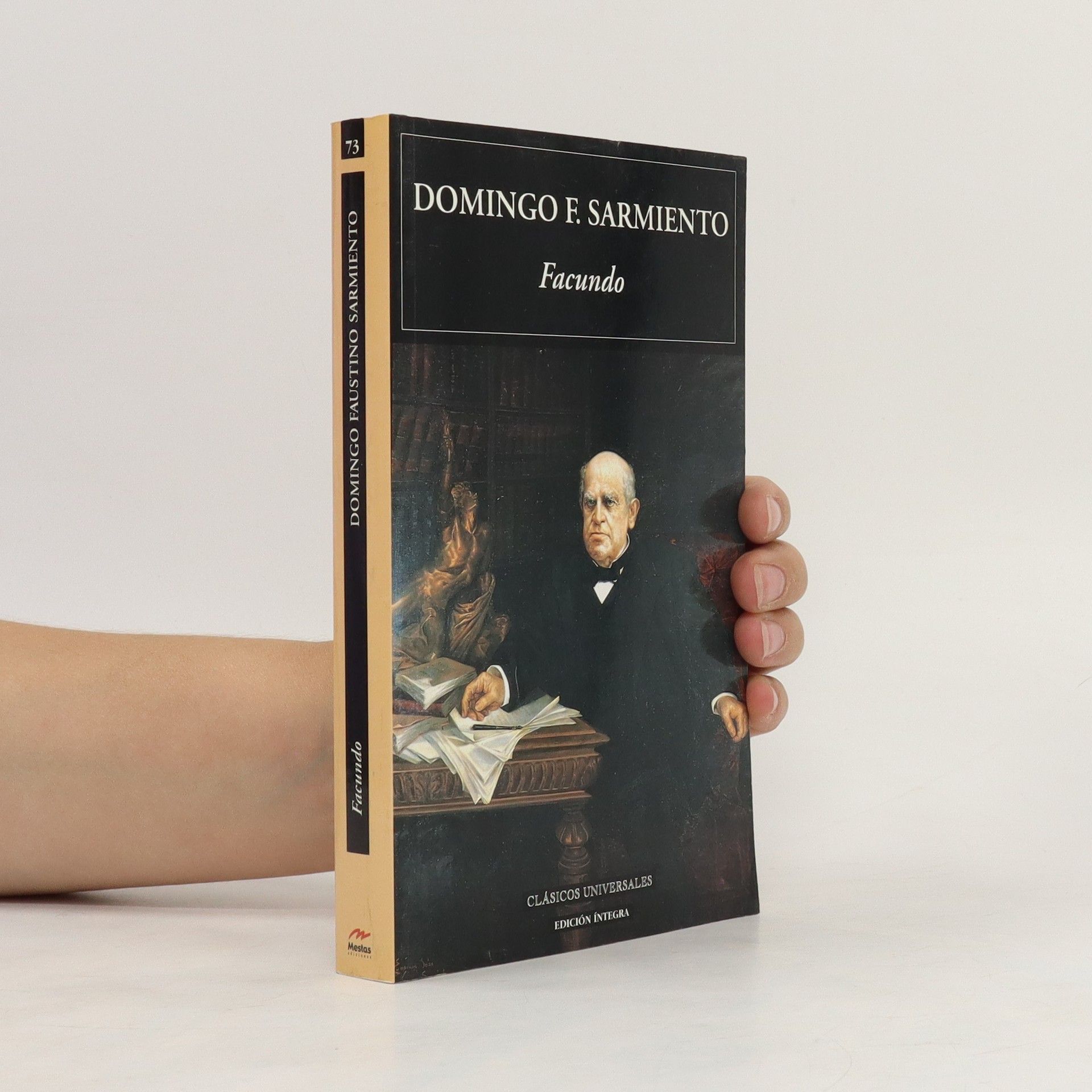Facundo
- 315pages
- 12 heures de lecture
Una de las obras fundamentales de la literatura argentina
Domingo Faustino Sarmiento fut un militant, intellectuel, écrivain et homme d'État argentin dont l'œuvre a profondément influencé l'Argentine du XIXe siècle. Il se consacra particulièrement à la réforme éducative, ce qui lui valut le titre de « Le Professeur » de l'Amérique latine. Ses écrits prolifiques couvraient le journalisme, l'autobiographie, la philosophie politique et l'histoire. Dans son œuvre majeure, il critiqua la dictature et opposa l'Europe éclairée à la barbarie perçue de la société argentine. En tant que président, Sarmiento a promu l'éducation et la démocratie, tout en modernisant les infrastructures du pays, laissant un héritage de pensée éclairée et de lutte contre l'autoritarisme.

Una de las obras fundamentales de la literatura argentina